Navigating the complexities of job redeployment can be quite an adventure, especially when you're faced with new opportunities within your organization. This letter template serves as a valuable guide to help you communicate your interest effectively and professionally. By leveraging the right words, you can make a compelling case for your potential fit in a different role. Ready to dive deeper into how to craft the perfect letter? Let's explore more!

Clear job role and responsibilities
A job redeployment offer outlines a new position within an organization for an employee transitioning from their current role. This document specifies the clear job role and responsibilities associated with the new position. For instance, a Sales Manager in a technology company may transition to a Business Development role, focusing on expanding market presence. Key responsibilities include identifying potential clients, developing strategic partnerships, and conducting market research to drive growth. The new job description can also encompass collaboration with the marketing team, setting sales targets, and reporting performance metrics regularly. Detailed information about the reporting structure will be provided, highlighting direct supervisors and team dynamics within the company. It is essential to include expected outcomes, such as revenue growth percentages and specific project milestones, to quantify the role's impact. Additional training opportunities may be mentioned to facilitate a smooth transition into the new responsibilities, ensuring that the employee feels supported during the change.
Compensation and benefits details
When companies offer job redeployment, it's essential to provide clear compensation and benefits details to ensure employees understand their new roles and remuneration. The revamped position typically aligns with industry standards and internal equity, reflecting the employee's experience and skill set. For example, the new salary might increase by 10% based on market analysis conducted in 2023, with additional benefits such as a relocation allowance of up to $5,000 for employees moving to new offices, comprehensive healthcare plans featuring 100% coverage for essential services, and a retirement savings plan with a company match of up to 6%. Employees may also receive sign-on bonuses ranging from $1,000 to $3,000 based on the department's budget and individual performance metrics established at annual reviews. Additionally, flexible working arrangements like remote work options may enhance overall job satisfaction and work-life balance during this transition period.
Reporting structure and department
In a corporate environment, the transition to a new role often involves a change in reporting structure and department alignment. For example, an employee moving from a sales department in a tech company, like Salesforce, to a marketing role within the same organization may experience a shift in responsibilities. The new reporting structure may place the employee under the supervision of the Head of Marketing, with a team of six reporting to this position. This change can enhance collaboration, necessitating cross-departmental meetings, project planning sessions, and strategy discussions specific to digital marketing initiatives. Clearer communication channels and defined performance metrics may also be established to support the employee's adaptation and alignment with the new departmental goals.
Start date and transition timeline
A job redeployment offer details the terms and conditions of transferring an employee to a new role within an organization, particularly during corporate restructuring, acquisitions, or role changes. The proposed start date for the new position is essential, ensuring smooth transitions; it typically falls within two to four weeks from acceptance of the offer, depending on the complexity of responsibilities and knowledge transfer requirements. The transition timeline may outline crucial milestones, including training sessions, introductory meetings with team members, and gradually increasing responsibilities over the first month to facilitate adaptation to the new environment. This structured approach fosters a successful redeployment, minimizing disruption to both employee and organizational productivity.
Acceptance and response instructions
The job redeployment offer signifies a transition opportunity within the organization, allowing employees to retain employment while adapting to new roles. Acceptance of the offer requires the employee to acknowledge receipt of the redeployment details, including position title, department, and start date. Clear instructions for response typically involve confirming acceptance by a specific deadline, often provided via email or through a company portal. Important considerations include understanding new job responsibilities, reporting to an updated supervisor, and reviewing any changes in salary or benefits. Employees should also inquire about possible training resources to ensure a smooth transition into the new role.

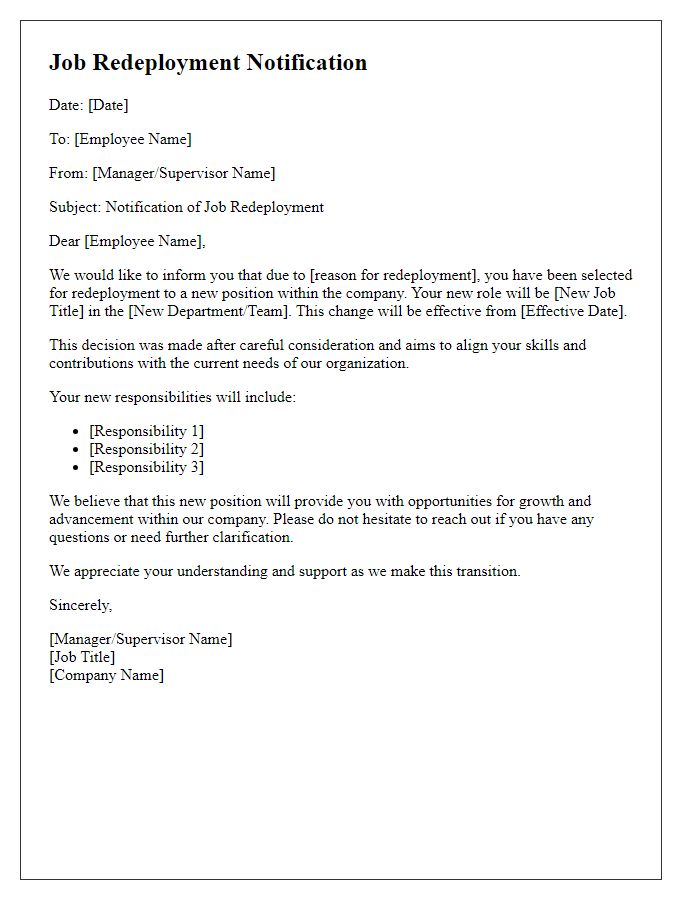
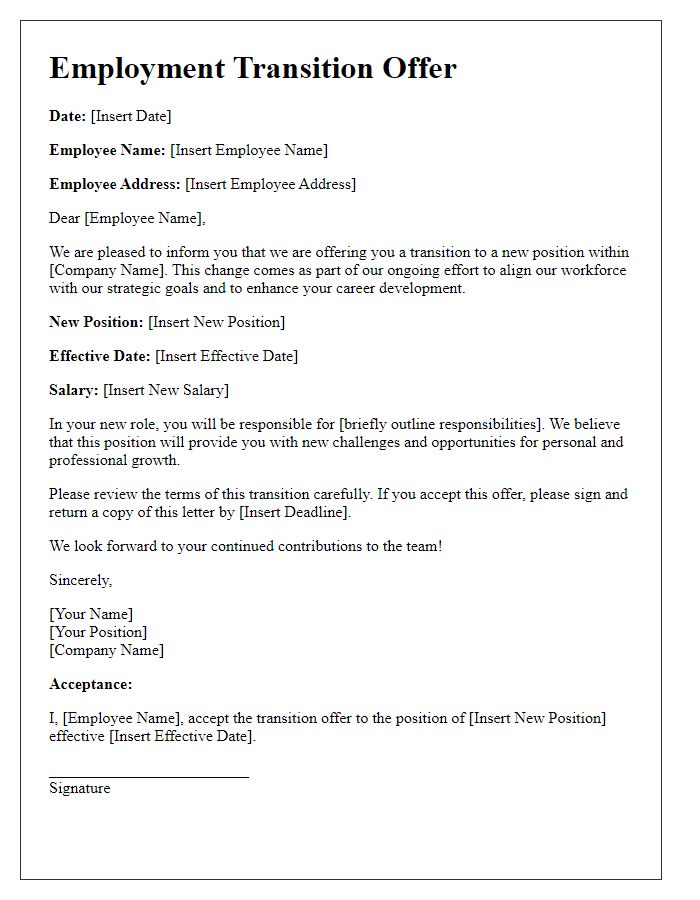
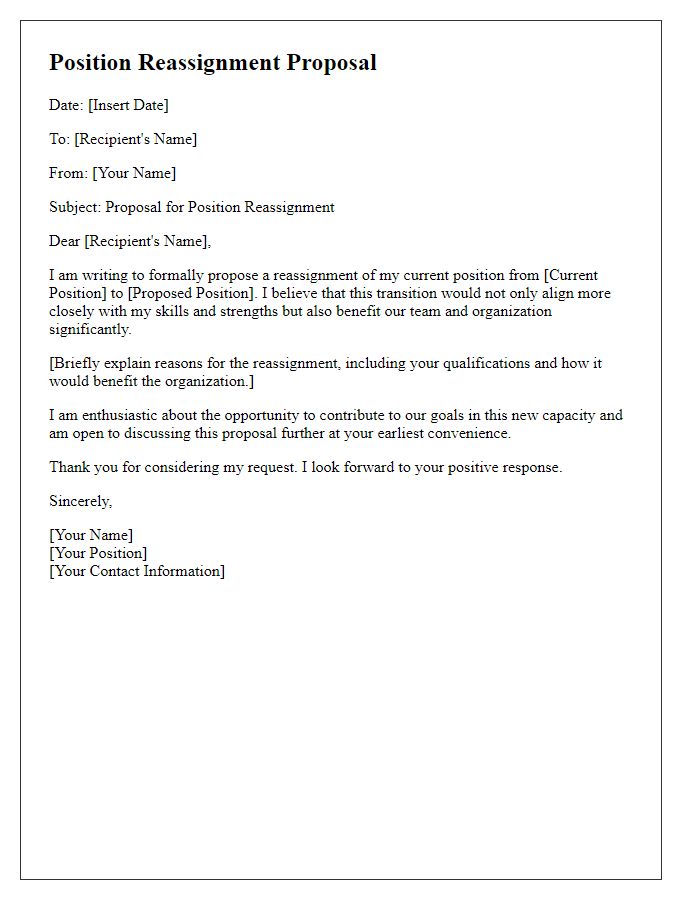
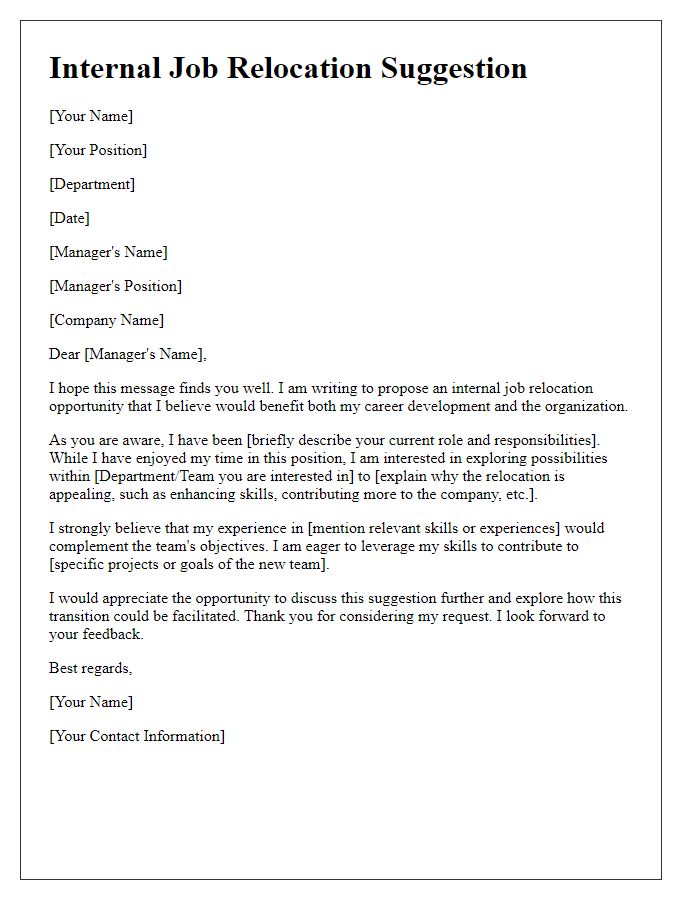
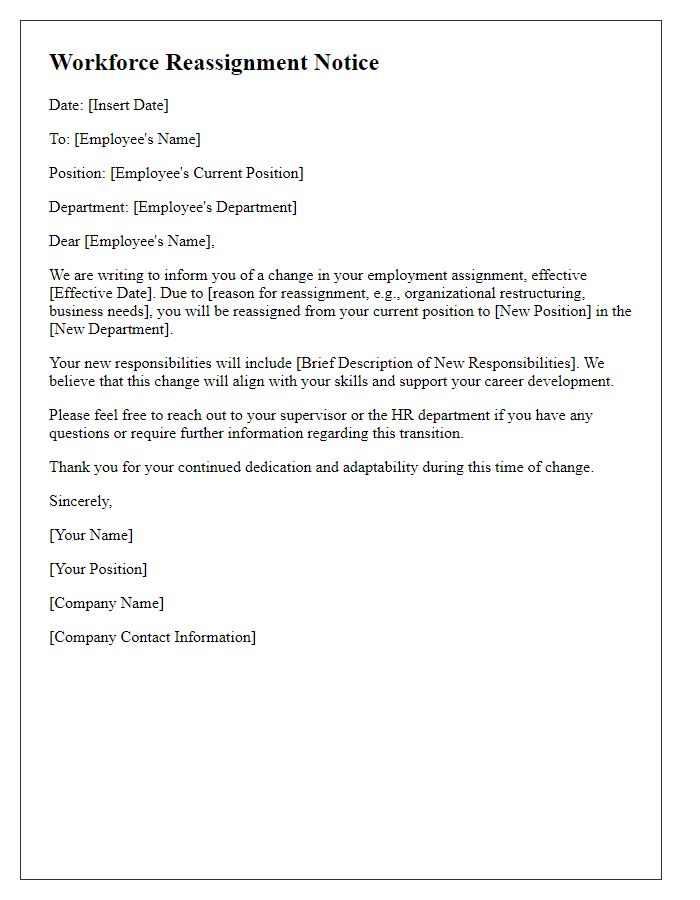
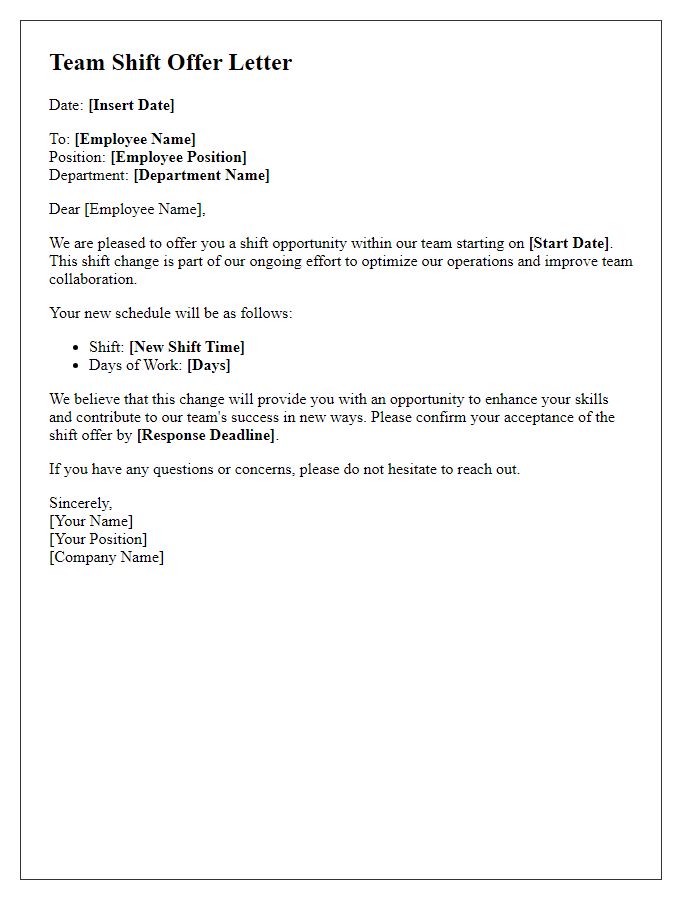
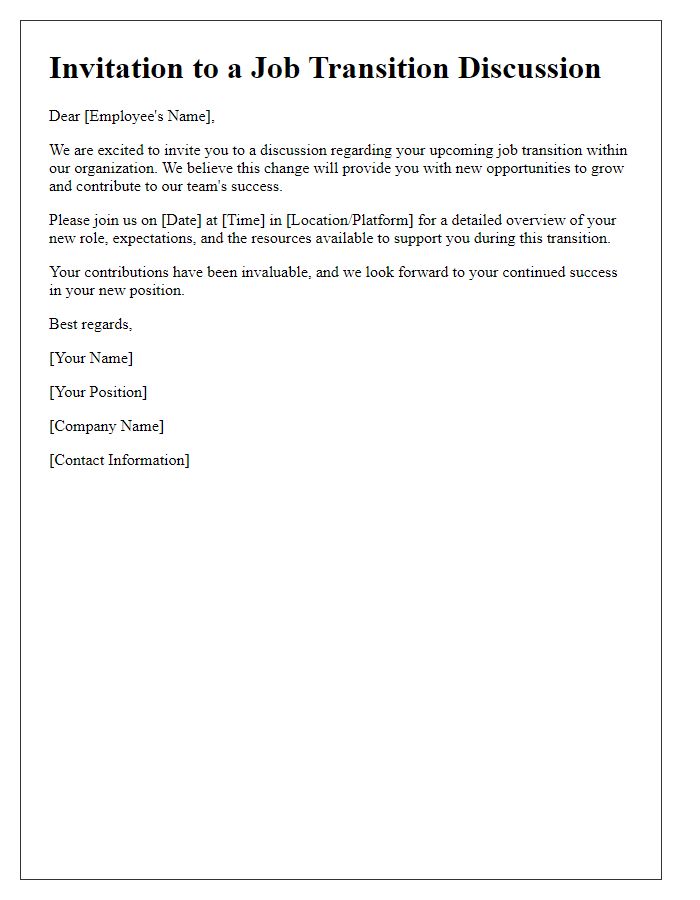
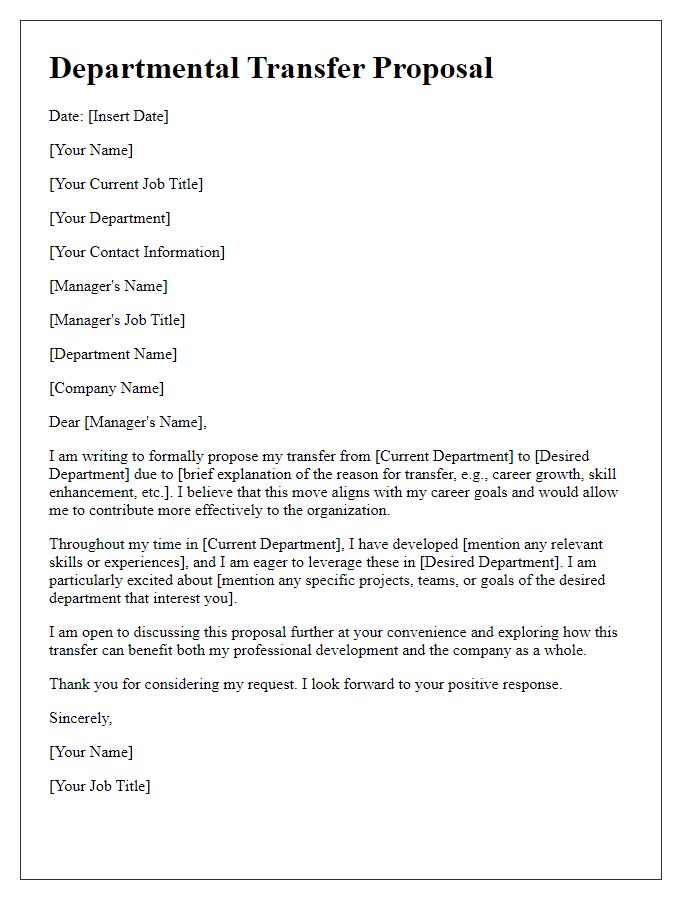
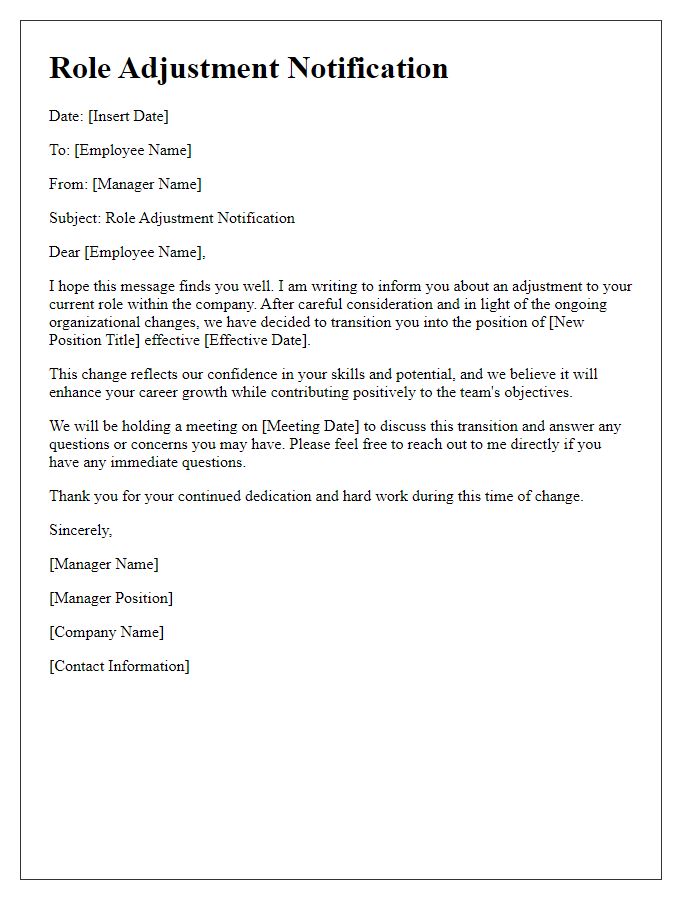
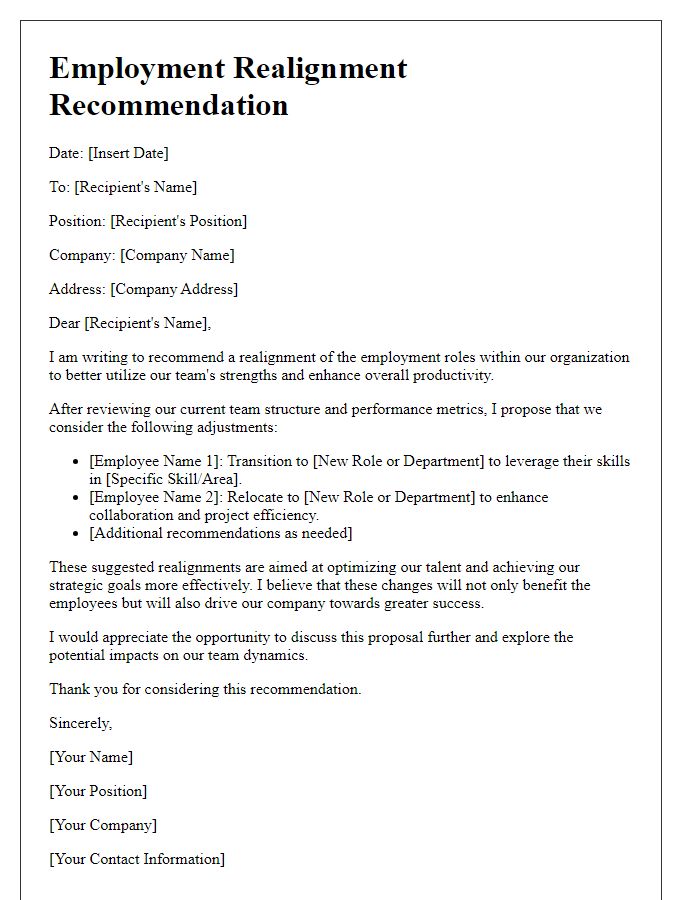


Comments